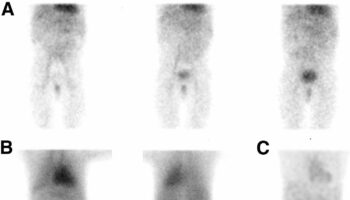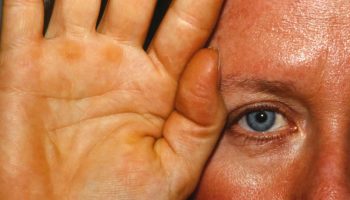Contents
What is a bland diet
A bland diet also known as a “soft diet,” includes foods that are generally soft, cooked rather than raw, not very spicy, and low in dietary fiber. If you are on a bland diet, you should not eat spicy, fried, fatty foods, raw foods, strong cheeses, whole grains (rich in fiber), and the medications aspirin and ibuprofen are also avoided while on bland diet. You should not drink alcohol or drinks with caffeine in them. Fried foods and highly seasoned foods, pepper, caffeinated beverages and alcohol may cause distress and, therefore, are eliminated.
Such a diet is called bland because it is soothing to the digestive tract (it minimizes irritation of tissues) and is designed to decrease peristalsis. It can also be bland in the sense of “lacking flavor”, but it does not always have to be so; nonirritating food can be appetizing food, depending on preparation and individual preferences.
The foods included in the bland diet are limited to non- stimulating, non-irritating and mildly seasoned products. Bland diet should be individualized according to your appetite and food tolerance. With time and recovery, you may be able to expand this diet to you tolerances. The bland diet or soft diet is designed to decrease peristalsis and avoid irritation of the gastrointestinal tract.
All nutrients are available on the bland diet. Texture is modified by offering items that are easily digested, moderately low in roughage (fiber) and very mildly seasoned products. Tender foods are used such as cooked vegetables, canned fruits, and refined breads and cereals.
When you are on a bland diet:
- Eat small meals and eat more often during the day.
- Chew your food slowly and chew it well.
- Stop smoking cigarettes, if you smoke.
- DO NOT eat within 2 hours of your bedtime.
- DO NOT eat foods that are on the “foods to avoid” list, especially if you do not feel well after eating them.
- Drink fluids slowly.
A bland diet can be used alongside lifestyle changes to help address the symptoms of ulcers, heartburn, gastro-esophageal reflux disease (GERD), nausea, and vomiting, gas and flatulence, gastritis, dyspepsia and treatment of hiatus hernia. You may also need a bland diet after stomach or intestinal surgery.
However, according to the American College of Gastroenterology, peptic ulcers are not caused by spicy foods or a rich diet. Certain foods might irritate an ulcer that is already there, however, the food is not the cause of the ulcer. People diagnosed with ulcers do not need to follow a specific diet. The days of ulcer patients surviving on a bland diet are a thing of the past 1.
A bland diet is designed primarily to help patients recover from gastrointestinal conditions or other medical circumstances in which improved digestion would be essential. Bland diet is not especially effective as a long- term weight loss diet, although portion sizes are strictly controlled. Many people find a bland diet to be very difficult to maintain, although some find the use of acceptable spice alternatives does make it easier. Most patients slowly return to a more normal diet once their medical issues have been resolved. Your health care provider will tell you when you can start eating other foods again. It is still important to eat healthy foods when you add foods back in. Your doctor can refer you to a dietitian or nutritionist to help you plan a healthy diet.
What to eat on a bland diet
Cook by baking, boiling, broiling, roasting, stewing, microwaving or creaming. Avoid frying. Avoid caffeinated beverages, coffee and tea products because of the caffeine, theobromine, and tannins. Citric acid juices may be irritating to some individuals. Avoid aspirin or ibuprofen, non steroidal anti-inflammatory drugs (NSAIDs).
Eat three regular meals a day without snacks since all food stimulates acid output. Eat foods slowly, chew well and avoid stomach distention with large quantities of food. Use milk sparingly because it stimulates gastric acid secretion. Use salt and very mild seasonings. Avoid heavy spices such as chili peppers, black pepper, chilis powder and highly seasoned foods. Dietary fiber may be added since there is no evidence that dietary is harmful.
Foods you can eat on a bland diet include:
- Milk and other dairy products, low-fat or fat-free only
- Cooked, canned, or frozen vegetables
- Fruit juices and vegetable juices (some people, such as those with gastro-esophageal reflux disease (GERD), may want to avoid citrus and tomato)
- Breads, crackers, and pasta made with refined white flour
- Refined, hot cereals, such as Cream of Wheat (farina cereal)
- Lean, tender meats, such as poultry, whitefish, and shellfish that are steamed, baked, or grilled with no added fat
- Creamy peanut butter
- Pudding and custard
- Eggs
- Tofu
- Soup, especially broth
- Weak tea
Foods to Avoid
Some foods you may want to avoid when you are on a bland diet are:
- Fatty dairy foods, such as whipped cream or high-fat ice cream
- Strong cheeses, such as bleu or Roquefort cheese
- Raw vegetables
- Vegetables that make you gassy, such as broccoli, cabbage, cauliflower, cucumber, green peppers, and corn
- Dried fruits
- Whole-grain or bran cereals
- Whole-grain breads, crackers, or pasta
- Pickles, sauerkraut, and similar foods
- Spices, such as hot pepper and garlic
- Foods with a lot of sugar in them
- Seeds and nuts
- Highly seasoned, cured or smoked meats and fish
- Fried foods
- Alcoholic beverages and drinks with caffeine in them
You should also avoid medicine that contains aspirin or ibuprofen (Advil, Motrin).
Bland diet food list
- Milk, yogurt and cheese 2 – 3 servings: Skim, low fat, or whole milk, buttermilk, mild drinks such as pasteurized eggnogs, milkshakes, chocolate mild, cocoa, evaporated or condensed milk, non-fat dry milk solids, yogurt with allowed fruits, cottage cheese, soft mild American or mild cheeses.
- Meat, poultry, fish, dry beans, eggs and nuts 2 – 3 servings: Baked, boiled, broiled, roasted, stewed, micro waved or creamed meat and fish, very tender chicken, turkey, veal, beef, lamb, lean pork, all fish (no bones), smooth peanut butter, soft prepared meat alternates, finely ground nuts, tofu, (soy cheese), eggs and style except fried, egg substitutes.
- Bread, cereal, rice and pasta 6 -11 servings: Refined whole wheat bread, enriched white bread, rye bread without seeds, plain rolls and crackers (saltine or graham) refined cereals (cooked or dry) hot breads as tolerated, rice, spaghetti (plain, no spicy sauce), macaroni, noodles, pasta Coarse, whole grains, highly seasoned snack crackers, any containing seeds, nuts or dried fruits, highly seasoned rice and pasta.
- Vegetable 3 – 5 servings: Mashed, boiled, creamed or baked white or sweet potato, all cooked or canned vegetables* and vegetable juices, chopped lettuce as tolerated.
- Fruits 2 – 4 servings: As tolerated, all fresh, canned and frozen fruits or fruit juices.
- Sweets and desserts: Use sparingly sugar, syrup, honey, jelly, seedless jam, molasses, nonnutritive sweeteners, hard candies, plain chocolate candies, marshmallows, all desserts made with allowed foods: cakes, cookies, pies, pudding, custard, ice cream, sherbet, gelatin dessert Jams, marmalades.
- Miscellaneous: As desired salt, mild spices, herbs, flavorings, mildly flavored gravies and sauces, olives, caffeine-free soft drinks.
Sample daily menu plan
Breakfast food items
- 1. Orange Juice 200g
- 2. Noodles 50g
- 3. Scrambled eggs 55g
- 4. Cow’s milk 250ml
- 5. Brown bread 2 piece (30g)
Lunch food items
- 1. Roasted mutton 100g
- 2. White rice 50g
- 3. Dal 50g
- 4. Cow’s milk 150ml
- 5. Bananas 1 pieces (100g )
Dinner food items
- 1. Chapattis 3 (100g)
- 2. Boiled fish 100g
- 3. Potatoes 100g
- 4. Curd 200g
- 5. Cooked vegetables 100g
- 6. Grapes juice 100g
- Peptic Ulcer Disease. http://patients.gi.org/topics/peptic-ulcer-disease/[↩]





